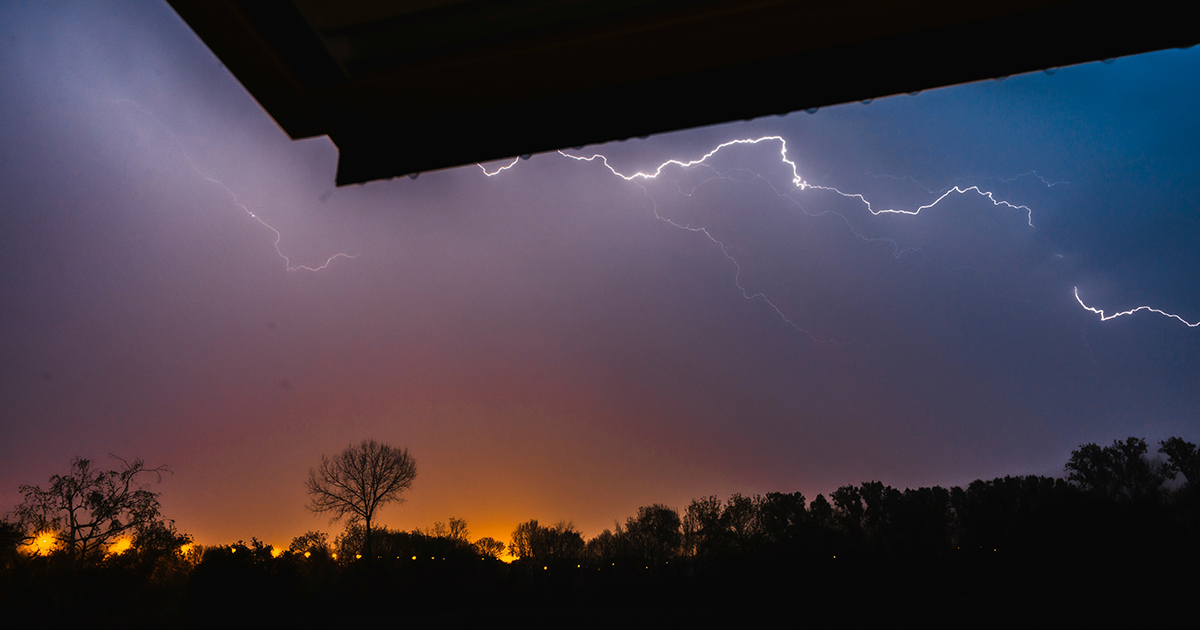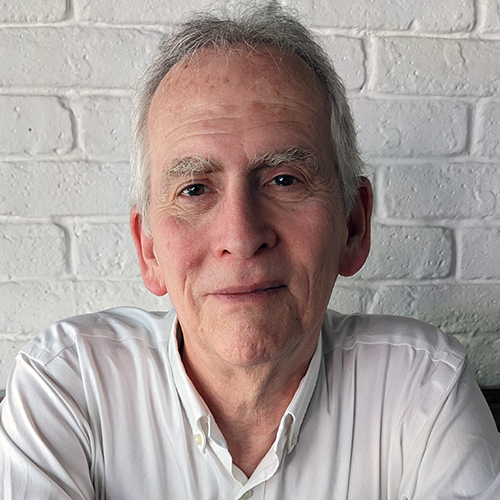GEORGE FRANKLIN
★ ★ ★ ★
POETRY

Image by Alexandre Debieve
Watching a Hurricane Pass to the West
Light through the window fades to a dull-
Blue wash of water, rain on the roof,
A Bakelite radio stuck between
Stations, the aloe vera plant on
The patio a deepening green.
There’s a brief lull between bands; then it
Resumes, shadows grown darker, as the
Sun, invisible, sinks on the storm’s
Other side, the Gulf of Mexico.
Meanwhile, coffee in hand, I’m standing
Here listening to rain as modern
Jazz, shades of blue light ricocheting
Off the wooden fence, tree limbs in their
Odd stooped-over dance. It’s probably
Nothing anyone should make sense of,
Much less enjoy. Again, there’s a leak
In the roof over my son’s bathroom.
Water bubbles beneath the paint. I
Think of the cost and take a breath. The
Storm drips slowly from the light fixture.
In Bogotá
The Gaitán museum in Santa Teresita had closed
During the pandemic and hadn’t reopened. We
Drove past it, an aging white house in a green yard, but
The rest we had to imagine: the hat with a bullet hole,
The suit he was wearing, in a glass case, the one Vásquez
Describes in La forma de las ruinas. Your sister Pilar
Offered to drive, maneuvering her SUV through
Narrow streets and around cars blocking intersections.
On the way to Candelaria, a man was sitting outside
Wrapped in a poncho, drinking coffee. The sun
Slowly took the chill off the sidewalks and rooftops.
It was Saturday, and families walked between gray office
Buildings and movie theaters. Graffiti looped unintelligibly
On the walls. There was no parking anywhere we really
Wanted to go, so we kept driving. The Casa de Poesía Silva
Was closed too. I thought of books growing damp, sheets
Thrown over the furniture. We could have gone shopping
Or to a café, but instead, we drove back to our hotel in
Chapinero, the red-brick architecture of an English suburb,
Streets zigzagging up into the hills. Gaitán’s murder had set off
A civil war that Americans didn’t study when I was in school.
At least, North Americans didn’t study it. The next day,
There was lunch at Pilar’s, and we talked about the other civil war,
The one that caused you to leave Colombia for Miami. Later,
We both felt exhausted, drank coca tea for the altitude.
What We Know, What We Can’t Know
Late at night, we were out walking. It’s
A time when the only shapes that cross
The darkness are cats or opossums,
Their eyes reflecting passing headlights.
But this didn’t move anything like
An opossum or a cat. It was
Darkness outlined on darkness until
It lifted its wings and floated ten
Or twenty feet straight ahead. I said
To Ximena, “It’s some kind of bird.”
But I couldn’t see more. Then, it flew
Again, wings enormous, only the
Shadow of an outline, and silent—
Just a glimpse in profile before it
Rose between the rooftops and was gone.
“It’s a crane,” I repeated, first to
Myself and then to Ximena. “It’s
A crane at night, maybe lost, maybe
Looking for its mate, awake somewhere,
Another shape in the dark, waiting.”

George Franklin’s most recent poetry collections are Remote Cities (Sheila-Na-Gig Editions, 2023), and a collaboration with Colombian poet Ximena Gómez, Conversaciones sobre agua/Conversations About Water (Katakana Editores, 2023). Individual publications include The Wild Word, Cultural Daily, Rattle, Another Chicago Magazine, and New York Quarterly. He practices law in Miami and teaches writing workshops in Florida prisons for Exchange for Change. He is the first prize winner of the 2023 W.B. Yeats Poetry Prize. Website: www.gsfranklin.com.
























The clear, graceful narrative of these three poems exhibits also a depth and the presence of a deeper layer of meaning hidden within the storyline. Implications. I love the sparseness and sagacity of this work. Yeats, indeed! From this sample, I would say, “Well deserved.”